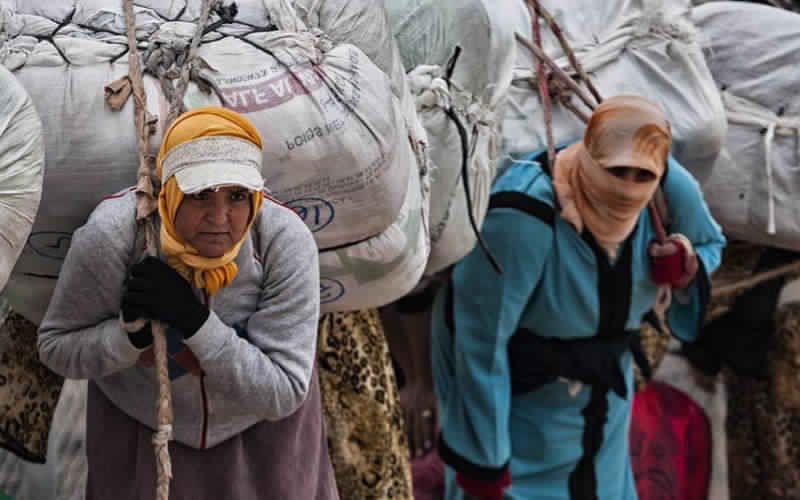Moroccan ’Mule Women’ Face Exploitation and Poverty, Report Reveals

Between weariness and doubts, the suffering of the mule women is great and without hope, relates Hanane, a 35-year-old mule woman, in a documentary made by the Assaida Al Horra Association and broadcast before the presentation of the conclusions of its annual regional report on the violence suffered by women and girls in the Tanger-Tétouan-Al Hoceima region. A very touching report that urgently calls for a resolution of the situation of these women.
Poverty, unemployment of husbands, exploitation of parents, loss of family support..., these are the reasons that push some 3,500 women or more to opt for the activity of goods carrier, indicates the report of the Parliamentary Fact-Finding Mission on the situation of abandoned children and mule women in the Bab Sebta area, published in January 2020, relays Al Bayane.
Thus, about 67% of them use their salaries to meet the needs of their families and to pay the school fees of their children, 33% for the construction of the family home. Among these women, 43% do not have health coverage, 48% have the Ramed card, while 60% suffer from physical, economic and psychological violence, compared to only 7% who benefit from Spanish health coverage, explained the Assaida Al Horra Association.
For Ms. Zemmouri, a human rights activist and coordinator of the provincial body for equity, equal opportunities and the gender approach in the prefecture of M’diq-Fnideq, several women are on the verge of danger every day to find sustenance. These women carried more than 80kg of goods for 150 to 170 dirhams per day, before the amount was revised to 300 dirhams, after a protest, said Hanane, who has to provide for the needs of her two daughters with this activity.
After several voices from associations and others, following the closure of the border area, the construction work on the economic activity zone of Fnideq has recently been launched. It is, first of all, work on a part of 10 hectares which should extend to 90 hectares later. An appreciable initiative, rejoices Hanane who dreams of having a decent job and a stable income, since this project will promote access to employment, reduce unemployment and put an end to the suffering of the mule women.
Related Articles
-

Spanish Olive Oil Industry Battles Misinformation Amid Supply Chain Scrutiny
4 September 2025
-

Ex-Terror Convict Urges Spain to Arm Separatists Against Morocco
3 September 2025
-

Foreign Buyers Flock to Spanish Coastal Rentals: Germans Lead Surge in Balearic Islands
31 August 2025
-

Catalan Police Deploy Stealth Units to Thwart Highway ’Flat Tire’ Scam Targeting Tourists
30 August 2025
-

Spain’s Military Readiness Under Scrutiny as Morocco Eyes Ceuta and Melilla
27 August 2025